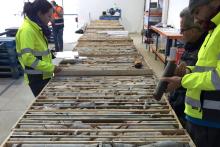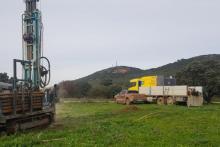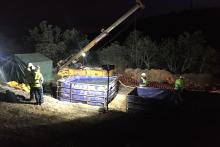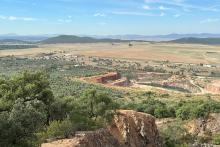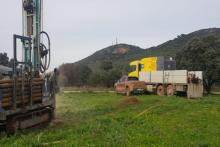Infinity Lithium has cited high-level European Commission and Spanish national government support for ambitious EU electric vehicle and battery supply chain expansion targets that support development of significant domestic raw material sources such as its San Jose lithium project in Spain. Last week’s European Battery Alliance Day spotlight on San Jose followed the recent cancellation of Infinity’s investigation permit by a regional Spanish government.


Infinity Lithium has cited high-level European Commission and Spanish national government support for ambitious EU electric vehicle and battery supply chain expansion targets that support development of significant domestic raw material sources such as its San Jose lithium project in Spain. Last week’s European Battery Alliance Day spotlight on San Jose followed the recent cancellation of Infinity’s investigation permit by a regional Spanish government.
The company is appealing against the move.
Talks at the European Battery Alliance Day held in Madrid, Spain, involving EC Vice President Maros Sefcovic and Spain President Pedro Sanchez appeared to underline the strategic importance of the few, commercial-scale lithium and other battery material deposits in Europe.
A presentation during the battery day by Infinity Managing Director and CEO, Ryan Parkin addressed the current status of San Jose.
The company aspires to become a strategic player in supplying battery grade lithium hydroxide to the EU’s burgeoning automotive industry as the region transitions towards electric vehicle, or “EV” mass adoption.
Europe is going through rapid policy driven changes with the uptake of electric vehicles pivotal to the region’s shift to low-carbon industry and economic development.
According to Infinity, 2020 third-quarter EV registrations in the EU surpassed diesel internal combustion engine vehicle registrations for the first time. EVs represented 15 per cent of all vehicle sales in the EU in the first quarter of 2021.
Infinity says Europe is the second largest market for battery grade lithium after China. Spain is the second largest automotive manufacturer in the EU having produced some 2.8 million vehicles in 2019.
Raw material supply for production of lithium-ion batteries is seen as key to Europe ramping up domestic manufacturing to meet expected future demand for EVs.
However, capital needed to advance Europe’s few major lithium projects has generally been thin on the ground. The material’s price fall well below required incentivisation levels for many projects before recovery in the past year did not help.
San Jose, cited as the second largest hard rock lithium resource in the EU, hosts 111.3Mt of resources going 0.28 per cent lithium and 0.61 per cent lithium oxide. Infinity’s pre-feasibility study outlined 30 years of lithium hydroxide production from 19 years of mining, potentially generating US$6 billion of revenue.
Annual lithium hydroxide production was put at 15,000 tonnes.
Mr Sefcovic said at the battery day: “Just two years ago we did not have lithium on the list of critical raw materials for Europe. Now we know that by 2030 we will need 18-times more, by 2050 we will need 60-times more, and when I talk to the industry they still tell me this is a very conservative estimate. On top of this we still do not have one single refinery for lithium in Europe.”
“From the start we have been working on making sure that we are covering the whole value chain.”
Infinity said the ‘Espana 2050’ project launched by Mr Sefcovic and Mr Sanchez highlighted both Spain’s potential future importance in a regional EV and lithium-ion battery supply network and the geostrategic significance of San Jose as part of Spain’s future industrial roadmap.
Mr Sanchez credited San Jose as “of one of the largest lithium deposits on the continent” and suggested Spain would “require greater use of raw materials such as lithium … for our country to replace its dependence on foreign fossil fuels”.
Is your ASX-listed company doing something interesting? Contact: matt.birney@businessnews.com.au





